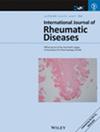Human Papillomavirus Infection and Autoimmune Diseases: A Two-Sample Bidirectional Mendelian Randomization Study
Abstract
Background
Although earlier observational studies have revealed a connection between human papillomavirus (HPV) infection and several autoimmune diseases, such as systemic lupus erythematosus (SLE) and rheumatoid arthritis (RA), the exact causative mechanism underlying this association is still unknown.
Methods
This two-sample bidirectional MR study was conducted based on publicly released data from genome-wide association studies (GWAS). Our results were mainly derived from the inverse variance weighted (IVW) model, with the remaining three models also being calculated. The MR Steiger test was used to examine the correctness of our causal direction. Sensitivity analysis was performed using Mendelian randomized pleiotropy residual sum and outlier (MR-PRESSO), MR-Egger regression.
Results
The IVW results showed that there was a positive causal association between HPV16 E7 protein and SLE (odds ratio (OR) = 1.075, 95% confidence interval (CI), 1.003–1.151, FDR-p = 0.04), however, there was a negative causal association between HPV18 E7 protein and SLE (OR = 0.884, 95% CI, 0.804–0.972, FDR-p = 0.02). No causal associations of HPV16 E7 protein and HPV18 E7 protein with RA, IBD was observed including its subtypes Ulcerative colitis (UC) and Crohn's disease (CD). Sensitivity analysis showed that there was no significant heterogeneity (p > 0.05) or genetic pleiotropy (p > 0.05).
Conclusion
Our two-sample bidirectional Mendelian randomization study identifies a causal association between HPV infection and SLE, but no causal association between HPV infection and RA and IBD.

 求助内容:
求助内容: 应助结果提醒方式:
应助结果提醒方式:


